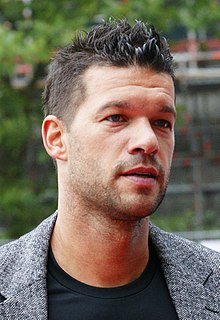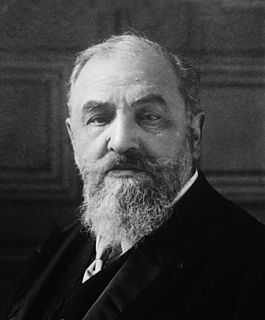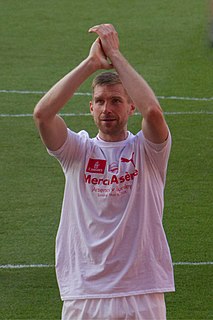A Quote by Michael Ballack
When I see Mario Gotze, his development does not go in the right direction. He has outstanding qualities, but he has not reached his potential for whatever reason. His charisma is not so good, fellow players, coaches, fans and the media do not feel that he is fighting against his current situation. He's more an introvert player.
Related Quotes
Pressed up against him, I can feel the thud of his heart against mine, his ribcase expanding and contracting rapidly against my chest, the warm whisper of his breath tickling the side of my neck, the brush of his leg against my thigh. Resting my arms on his shoulders, I pull back a little to get a look at his face. But he isn't smiling any more.
The master in the art of living makes little distinction between his work and his play, his labor and his leisure, his mind and his body, his information and his recreation, his love and his religion. He hardly knows which is which. He simply pursues his vision of excellence at whatever he does, leaving others to decide whether he is working or playing. To him he's always doing both.
To assert that it is possible to establish peace between men of different nations is simply to assert that man, whatever his ethnical background, his race, religious beliefs, or philosophy, is capable of reason. Two forces within the individual contribute to the development of his conscience and of his morality: reason and sensitivity.
Depending on the year or the therapist he was seeing, he'd learned to ascribe just about every facet of his character as a psychological reaction to his parents' fighting: his laziness, his overachieving, his tendency to isolate, his tendency to seduce, his hypochondria, his sense of invulnerability, his self-loathing, his narcissism.
I have no religion, and at times I wish all religions at the bottom of the sea. He is a weak ruler who needs religion to uphold his government; it is as if he would catch his people in a trap. My people are going to learn the principles of democracy, the dictates of truth and the teachings of science. Superstition must go. Let them worship as they will; every man can follow his own conscience, provided it does not interfere with sane reason or bid him against the liberty of his fellow-men.
The nobler sort of man emphasizes the good qualities in others, and does not accentuate the bad. The inferior does the reverse. . . . The nobler sort of man pays special attention to nine points. He is anxious to see clearly, to hear distinctly, to be kindly in his looks, respectful in his demeanor, conscientious in his speech, earnest in his affairs. When in doubt, he is careful to inquire; when in anger, he thinks of the consequences; when offered an opportunity for gain, he thinks only of his duty.
In the first place, the government ought not to be invested with power to control the affections, any more than the consciences of citizens. A man has at least as good a right to choose his wife, as he has to choose his religion. His taste may not suit his neighbors; but so long as his deportment is correct, they have no right to interfere with his concerns.
You definitely go through a stage, most coaches do, where you see a good player and you get enamored, you really like what the player does, but then when you put him into your system, it's not quite the same player that he was in another system. He has some strengths, but you cant utilize all those strengths. If you try to utilize all his strengths, you end up weakening a lot of other players who are already in your system.





































